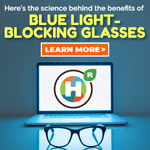
Medical researchers remain baffled at attempts to treat obesity with appetite suppressing hormones like PYY
 Tuesday, August 03, 2004 Tuesday, August 03, 2004by Mike Adams, the Health Ranger Editor of NaturalNews.com (See all articles...) Tags: appetite suppression, diet pills, PYY |
- Solar storm sparks concern as supervolcano nears eruption: Could sun's electromagnetic pulse trigger cataclysm?
- Mysterious hexagonal UFO sighting over California sparks questions amid government secrecy
- “Cancer-Free with Food”: A culinary revolution in the fight against disease
- Pfizer’s election meddling exposed: Top scientists weaponized science to sway the 2020 vote, so they could benefit from unlawful mandates
- Gum bacteria invade heart, trigger dangerous heart rhythm problems
- The hidden dangers of oversleeping: How too much rest harms cognition, fuels depression, and shortens life
- Trump’s Gulf tour sparks Iran nuclear deal breakthrough amid regional shifts
- The water cure: Unveiling the hidden link between dehydration, obesity, cancer and depression
- Zero-waste bean cooking: Repurposing pinto bean broth in soups or bread
- WHO's PANDEMIC AGREEMENT just a ploy to CONTROL every aspect of any SCAMDEMIC they declare at any time and indefinitely
- RFK Jr. announces simplified federal dietary guidelines promoting whole foods, slams past industry influence
- Unlocking the power of polyphenols: A new frontier in disease prevention and treatment
- Forever chemicals” invade Australian water supply: Investigation yields torrent of carcinogens, signifying vast regulatory failure
- James Comey's posts cryptic ’86 47′ message and gaslights the public after being confronted with passive aggressive death threat to President Trump
- Saw Palmetto: The mighty berry for men's health and beyond
- EXPENSIVE CANCER THERAPY promoted in New Zealand while ignoring the very CAUSE of their shockingly high rate of lymphoma cases
- New Jersey Transit engineers strike halts rail service, stranding 350,000 commuters
- CDC's dangerous gamble: Pregnant women and their unborn babies at put at unreasonable RISK from SIX toxic vaccines
- WAR ON COGNITION: The Coordinated Assault on Your Brain and How to Defend Yourself Against Every Attack
- Canada's COVID cover-up: Health officials swore secrecy to protect Trudeau from vaccine scandal
- Singapore's draconian vaccine mandate: Citizens face jail time for refusing FORCED medical procedures that do HARM
- Big Pharma's Dirty Secret: How Prescription Drugs Are Starving Your Body of Essential Nutrients
- Gene-edited pork sneaks onto your plate: FDA quietly approves CRISPR pigs amid health and ethical concerns
- RED ALERT: Nuclear War Between India and Pakistan Could Trigger Global Catastrophe… full RISK ANALYSIS
- JESUS NEVER SPOKE ENGLISH: Historical facts on why the Bible you’re probably reading has been altered, redacted or hidden from much of its original meaning
- Hidden poison in your medicine and supplements: How phthalates in capsules are silently attacking your heart, thyroid, and hormones
- BBC accused of “political censorship” for shelving Gaza documentary amid mounting pressure
- Brushing with poison: Study finds toxic heavy metals in 90% of toothpaste brands, including those for children
- Australia’s vaccine cover-up: 35 died same day as COVID shot, but authorities ignored them
- Why All Government Officials and Big Tech CEOs Who Engage in Systematic Viewpoint Censorship Must Be ARRESTED, Prosecuted, and Sentenced to Life in Prison
- Silent catastrophe: COVID-19 vaccines linked to plummeting fertility rates, Czech data reveals
- Survival basics: 5 Dangerous locations to avoid during an EMP attack
- X-class solar flare sparks worldwide disruptions, with more storms expected as sunspot turns toward Earth
- The truth about Benzyl Alcohol in beauty products
- DOJ targets controversial “Proximal Origin” study in push for scientific transparency
- Landmark study of 85 million reveals shocking surge in heart attacks, strokes, and sudden death following the notorious COVID-19 jab
- The Miraculous Healing Power of DMSO: Nature's Forgotten Cure for Cancer, Pain, and Regeneration
- Biblical truth: God will carry out a “cosmic reset” of Earth and destroy all human civilization with a series of extinction-level cosmic impacts known as The Seven Trumpets, Seven Bowls and Seven Seals
- URGENT REPORT: The China Import Embargo - What to Stockpile Now Before America Runs Out
- The Ultimate Survival Guide to Baking Soda: A Miraculous, Multi-Purpose Remedy for Health, Home, and Emergency Preparedness
- A call to preserve America’s future: “Defeating Big Government Socialism” by Newt Gingrich
- Stunning Visualization of the Seven Trumpets in the Book of Revelation
- Big Pharma launches “Vaccine Integrity Project” to combat Secretary Kennedy and keep 94 shots going into kids with mandates and liability protections
- World Economic Forum's current downfall exposes legacy of totalitarianism, financial fraud, and crimes against humanity
- Widespread social and economic unrest: Steve Quayle issues urgent financial warning of imminent asset collapse in new interview with Mike Adams
- Aerosolized bioweapons? Strange “diploid biomasses” falling out of the sky in Florida captured under the microscope
- Biden regime deployed over 600 grants to fund disinformation agenda, to silence the truth and stifle debate
- The Miraculous Healing Power of Green Tea: Unlocking the Potent Antioxidants That Big Pharma Doesn't Want You to Know About
- The unspoken truth about chemotherapy: These “treatments” create toxic time bombs in your body called CELL-KILLING PARTICLES
- U.S. Government's Bio-War Against America: 15 Historical Medical Horrors Inflicted on the American People by the Government Itself
- A win for free speech: State Department SHUTS DOWN controversial disinformation office
- French rioting demonstrates how gun control laws are failing law-abiding citizens
- Head of L.A. Port warns of incoming plunge in U.S. supply chain, empty shelves and inventory depletion in 5-7 weeks
- Supreme Court to review challenge to Illinois’ semi-automatic gun ban
- Red Cross issues warning to stop blood plasma donations from vaccinated people
- Scientists confirm: GENIUS brain function can be spontaneously unleashed in humans without any apparent cause
- EPA advisor admits the agency is funneling billions to climate groups ahead of Trump’s return to White House
- HYSSOP: What research reveals about the health benefits of this ancient holy herb
- Two containers with completed ballots fall out of truck in Florida
- Newly released JFK files reveal Pentagon's role in creating Lyme disease and covid in the same lab
- Mike Adams releases country western hit single: Goin’ Back in Time is Comin’ Home
- Global leaders unite to clamp down on “misinformation” with UN-backed Cascais Declaration
- BREAKING: 2025 NDAA authorizes mandatory military draft of WOMEN across America… as Pentagon pursues global NUCLEAR war with both Russia and China at the same time
- I Want My Bailout Money – new song released by Mike Adams
- Michael Yon warns of a ZIONIST TAKEOVER in Trump’s second administration
- Ozempic and Wegovy weight loss drugs are injectable LIZARD VENOM PEPTIDES that may unleash a devastating wave of organ failure… side effects align with symptoms of SNAKE BITES
- BOMBSHELL: DNA testing kits are a SCAM to develop ethnic-specific bioweapons
- The Health Ranger releases “Vaccine Zombie” song and music video, using AI-animated zombies for the music video
- These 13 countries just signed an agreement to engineer a global FAMINE by destroying food supply
- Israeli soldiers accused of even more torture and abuse in the West Bank
- RFK Jr. clears key hurdle: Sen. Susan Collins backs controversial HHS nominee, signaling a new era for health policy
- Sermon 30: How Jesus reveals Caesar’s FAKE CURRENCY and FALSE AUTHORITY
Let's talk about the bigger picture here, though. PPY is indeed a hormone involved in control of appetite. Appetite is a brain chemistry issue. Your body decides it's full when certain conditions are met and certain hormones are released, and some of the ways the human body decides it's full include sensing the level of blood sugar, sensing the physical fullness of your stomach, and perhaps even by sensing the digestive activity in the small intestine. Once these conditions are met, your brain decides it has had enough food, and then it changes the signal from one of hunger to one of satiation, which tells people to stop eating.
Part of the problem with this hunger signal system is that it has a rather delayed effect, so even though you may have consumed plenty of calories for a meal 20 minutes ago, your brain just now got the message that you had enough to eat. This delay causes people to frequently overeat because they are eating until they feel full, and feeling full doesn't necessarily correlate with the number of calories they've eaten.
This is especially true when it comes to processed foods such as breads, crackers, cookies, cereals, or anything made with white flour or added sugars, such as high-fructose corn syrup. The human body did not properly evolve to consume these items, and they are far more calorie-dense than items found in the natural environment. As a result, they can give your body more calories than natural foods would, and yet your stomach may only feel half-full. In other words, you can easily consume 1000 calories worth of pastries and baked goods without feeling full, even though if you tried to consume 1000 calories worth of apples, you probably wouldn't be able to do it because your hunger signals would be turned off long before you reached 1000 calories. So there's a complex interaction between appetite hormones and our modern food supply, which is heavily dominated by processed foods and manufactured foods.
Alongside all of this, medical researchers are working desperately to find a magic pill cure for obesity. This is as much a quest for the holy grail of pharmaceutical profits as anything having to do with human health. I'm sure researchers are somewhat interested in enhancing the health of human beings, but most scientists are a lot more interested in making several billion dollars by finding the pharmaceutical answer for obesity. In fact, there's an excellent book that details this search and the politics that take place in the quest for the holy grail of anti-obesity drugs. That book is called The Hunger Gene, and it's definitely a recommended read for anyone wishing to understand what's really going on behind the scenes in the quest for this magic anti-obesity drug.
Getting back to the news here, these researchers were hoping that PYY was the magic pill that would stop obesity. The idea is that if you simply take this pill, your hunger signals will be turned off, and you will automatically eat less. In theory, it sounds quite good, and if it worked, this would be one pharmaceutical that I would be willing to support, especially if it could be shown to have very few side effects; however, in practice, every attempt at creating a miracle anti-obesity drug has failed. It turns out that the hunger signals in the human body are not only highly complex, but redundant. In other words, you can turn off one hormone, but there are 3 or 4 other hormones that will still drive the hunger signal. The human body is so deeply ingrained with the idea of consuming calories and storing body fat that suppressing this natural drive is going to take more than a single hormone or a single pill. Time and time again, researchers looking for the magical appetite suppressant drug have been confounded by the ability of the human body to find new pathways to stimulate hunger.
Turning off hunger, it turns out, may be one of the most daunting tasks medical researchers have faced yet. And that's why procedures like gastric bypass surgery have proven to be so popular in recent years. It's something that they know will force people to eat less, and there's no surprise here -- if you take out most of a person's stomach or staple it shut, then obviously they can't fit much food in there anymore, and you have a way to force patients to eat less. It's barbaric, yes, but for some patients, it actually works. A much more sane approach would be to have an appetite suppressant pill that altered the appetite hormones in the brain and automatically caused patients to eat less. This, of course, would be a blockbuster drug. It would not only sell to a large number of patients -- remember that 2/3 of Americans are overweight and 1/3 are obese -- it would also be something that patients would have to take for the rest of their lives. The minute they stopped taking these drugs, they would once again start ballooning through overconsumption of foods, and they would eventually need to return to the drugs in order to control their appetite.
Interestingly, there have been some new developments in appetite suppressants from the natural health side of medicine and healing. A couple of somewhat promising plant-based appetite suppressants are emerging on the market, and I have evaluated both of them. The first is called hoodia, and it is a succulent native to South Africa that produces a chemical compound widely believed to suppress human appetite. Another item is called simmondsin, an extract from the jojoba plant, which is native to Peru and Bolivia and Central and South America. And of course, the jojoba plant is better known for its oil, but there's a lot of growing interest in this simmondsin extract ingredient as an appetite suppressant.
I've purchased and investigated these appetite suppressants with a great deal of interest, because I believe that suppressing the human appetite is a very promising strategy for treating obesity and avoiding all of the subsequent health care costs associated with obesity. However, I have been less than impressed with the performance of both hoodia and simmondsin. I've purchased and taken nutritional supplements made from both of these plants, and have not found a significant decrease in appetite from taking them. The only strategies that have worked for me to reduce appetite are engaging in frequent physical exercise, avoiding all processed carbohydrates and refined sugars, getting lots of natural sunlight (which regulates appetite hormones in your endocrine system), eating a high-fiber diet, and supplementing my diet with superfoods and various nutritional supplements that turn off carbohydrate cravings.
In this list, there's one element that turns off human appetite in a very powerful way: getting natural sunlight on your skin. In fact, I think that natural sunlight is the most powerful appetite suppressant yet available. I think it's more powerful than any of the natural appetite suppressant pills, I think it is more powerful than any prescription drug, I think it works better than gastric bypass surgery, and of course, it's absolutely free of charge and available without prescription. Unfortunately, as I've mentioned here before, that is exactly why natural sunlight is almost unknown to the general public. No one talks about the health benefits of sunlight for the simple reason that no one can generate profits from it. You can't bottle it up, regulate it, put it in a pill, and charge patients $100 a pill to take sunlight and get all of the health benefits from it. If they could do that, you can bet this would be front page news.
So, will medical researchers find the holy grail? Will they find a magic pill that will instantly turn off human hunger and automatically cause people to lose weight? While I remain hopeful that such a discovery may be made, I am simultaneously doubtful that conquering hunger is something that can be so easily achieved. The human body is strongly wired to consume foods, and when people consume processed foods and refined carbohydrates, they multiply the hunger effect that's already built into the human body. The idea that most people have about these sort of appetite suppressing pills is that they will be able to eat any foods they want, and just take one or two of these pills a day in order to automatically lose weight, and that's absolutely the wrong approach to being healthy.
Let's say that such a pill actually existed and was found to work. Let's say that the human appetite could be turned off by taking a pill. The average American would use that in the following way: they would continue to eat the same unhealthful, nutrient-depleted foods that they've always eaten, such as soft drinks, snack foods, junk foods, and processed foods. They would just eat smaller quantities of those foods, thanks to the appetite suppressing properties of the PYY hormone or whatever other hormone was found to actually work. The result of all of this would be thin Americans who are suffering from chronic diseases caused by nutritional deficiencies. That's because they would be getting very little nutrition from their foods, and yet they wouldn't have a whole lot of excess body fat, because they weren't overeating those foods. We would see skyrocketing rates of diseases like cancer, neurological disorders, osteoporosis and other diseases, even as people were getting thinner. Obviously, just turning off hunger is not the answer to our nation's health problems. We have to find a way to educate the public about the fundamentals of nutrition. We have to find a way to get superfoods into the hands and into the digestive systems of the American people. People need better nutrition, and that comes from vegetables and fruits and superfoods. It doesn't come from simply eating less of the same junk food that made people fat and diseased in the first place.
Appetite suppression at FETCH.news
Get independent news alerts on natural cures, food lab tests, cannabis medicine, science, robotics, drones, privacy and more.
 About the author:Mike Adams (aka the "Health Ranger") is a best selling author (#1 best selling science book on Amazon.com) and a globally recognized scientific researcher in clean foods. He serves as the founding editor of NaturalNews.com and the lab science director of an internationally accredited (ISO 17025) analytical laboratory known as CWC Labs. There, he was awarded a Certificate of Excellence for achieving extremely high accuracy in the analysis of toxic elements in unknown water samples using ICP-MS instrumentation. Adams is also highly proficient in running liquid chromatography, ion chromatography and mass spectrometry time-of-flight analytical instrumentation.
About the author:Mike Adams (aka the "Health Ranger") is a best selling author (#1 best selling science book on Amazon.com) and a globally recognized scientific researcher in clean foods. He serves as the founding editor of NaturalNews.com and the lab science director of an internationally accredited (ISO 17025) analytical laboratory known as CWC Labs. There, he was awarded a Certificate of Excellence for achieving extremely high accuracy in the analysis of toxic elements in unknown water samples using ICP-MS instrumentation. Adams is also highly proficient in running liquid chromatography, ion chromatography and mass spectrometry time-of-flight analytical instrumentation.
Adams is a person of color whose ancestors include Africans and Native American Indians. He's also of Native American heritage, which he credits as inspiring his "Health Ranger" passion for protecting life and nature against the destruction caused by chemicals, heavy metals and other forms of pollution.
Adams is the founder and publisher of the open source science journal Natural Science Journal, the author of numerous peer-reviewed science papers published by the journal, and the author of the world's first book that published ICP-MS heavy metals analysis results for foods, dietary supplements, pet food, spices and fast food. The book is entitled Food Forensics and is published by BenBella Books.
In his laboratory research, Adams has made numerous food safety breakthroughs such as revealing rice protein products imported from Asia to be contaminated with toxic heavy metals like lead, cadmium and tungsten. Adams was the first food science researcher to document high levels of tungsten in superfoods. He also discovered over 11 ppm lead in imported mangosteen powder, and led an industry-wide voluntary agreement to limit heavy metals in rice protein products.
In addition to his lab work, Adams is also the (non-paid) executive director of the non-profit Consumer Wellness Center (CWC), an organization that redirects 100% of its donations receipts to grant programs that teach children and women how to grow their own food or vastly improve their nutrition. Through the non-profit CWC, Adams also launched Nutrition Rescue, a program that donates essential vitamins to people in need. Click here to see some of the CWC success stories.
With a background in science and software technology, Adams is the original founder of the email newsletter technology company known as Arial Software. Using his technical experience combined with his love for natural health, Adams developed and deployed the content management system currently driving NaturalNews.com. He also engineered the high-level statistical algorithms that power SCIENCE.naturalnews.com, a massive research resource featuring over 10 million scientific studies.
Adams is well known for his incredibly popular consumer activism video blowing the lid on fake blueberries used throughout the food supply. He has also exposed "strange fibers" found in Chicken McNuggets, fake academic credentials of so-called health "gurus," dangerous "detox" products imported as battery acid and sold for oral consumption, fake acai berry scams, the California raw milk raids, the vaccine research fraud revealed by industry whistleblowers and many other topics.
Adams has also helped defend the rights of home gardeners and protect the medical freedom rights of parents. Adams is widely recognized to have made a remarkable global impact on issues like GMOs, vaccines, nutrition therapies, human consciousness.
In addition to his activism, Adams is an accomplished musician who has released over a dozen popular songs covering a variety of activism topics.
Click here to read a more detailed bio on Mike Adams, the Health Ranger, at HealthRanger.com.
Take Action: Support Natural News by linking to this article from your website
Permalink to this article:
Embed article link: (copy HTML code below):
Reprinting this article:
Non-commercial use OK, cite NaturalNews.com with clickable link.
Follow Natural News on Facebook, Twitter, Google Plus, and Pinterest
Science News & Studies
Medicine News and Information
Food News & Studies
Health News & Studies
Herbs News & Information
Pollution News & Studies
Cancer News & Studies
Climate News & Studies
Survival News & Information
Gear News & Information
News covering technology, stocks, hackers, and more



"Big Tech and mainstream media are constantly trying to silence the independent voices that dare to bring you the truth about toxic food ingredients, dangerous medications and the failed, fraudulent science of the profit-driven medical establishment.
Email is one of the best ways to make sure you stay informed, without the censorship of the tech giants (Google, Apple, Facebook, Twitter, YouTube, etc.). Stay informed and you'll even likely learn information that may help save your own life."
–The Health Ranger, Mike Adams













































